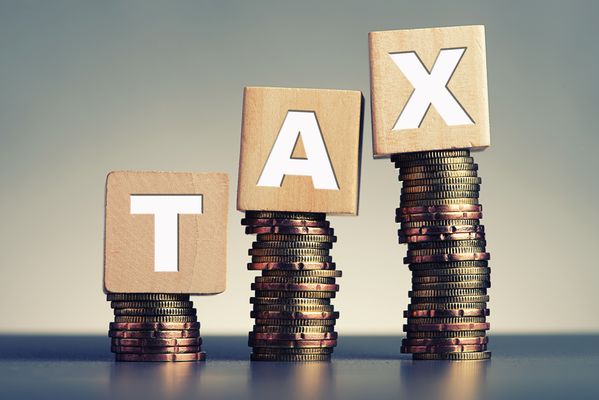6.3.2
Government Promotion of Competition
UK Competition Policy
UK Competition Policy
The UK's competition policy aims to reduce the amount of anti-competitive behaviour in markets and to protect consumers - it is undertaken by the Competition and Markets Authority (CMA).


Principles of UK Policy
Principles of UK Policy
- UK competition policy looks for anti-competitive play in the market.
- This can come from a number of different sources:
- E.g monopolies, mergers, cartels or financial support.
- There are industries that have their own regulatory bodies
- E.g. OFCOM deal with the communications industry and are in charge of ensuring fair play within it.


Monopoly prevention
Monopoly prevention
- Monopolies formed through mergers or agreements can often be inefficient.
- This is because they restrict quantity and agree to raise price to a level that isn't allocatively efficient.
- These are examples of anti-competitive strategies that governments want to avoid.
- Governments can prevent monopolies forming by blocking mergers. The UK government investigates all mergers which will result in a firm having greater than 25% market share (a legal monopoly).


Regulation
Regulation
- The power of these monopolies can be reduced by regulation.
- E.g. the introduction of a price ceiling by the government restricts the amount firms can raise their prices. Reducing the potential losses in efficiency.
- The price ceiling could be either: inflation minus real price, or inflation minus real price plus investment.
- Both of these are effective.
- Alternatively, the government could tax excessive profits, or set performance targets for monopolies.


M&A policy
M&A policy
- The CMA is also responsible for monitoring merger and acquisition (M&A) activity in the UK.
- In the UK, any firm who looks to merge with or acquire other firms in their market which leads to them then having 25%+ market share will be considered and maybe investigated by the CMA.
- The CMA decides whether the transaction would lead to a lack of competition in that market and so excessive monopoly power.
- If they believe it will lead to excessive monopoly power, they can block the deal.


Other CMA powers
Other CMA powers
- The CMA can force the break up of firms which have become too powerful in a market.
- If they believe a firm is abusing its monopoly power it can force the firm to split or sell some of its assets to increase competition.
- It is rare to break up firms which have gained power through internal growth.
Why Do Governments Encourage Competition?
Why Do Governments Encourage Competition?
Governments encourage competition because it leads to lower prices, higher quality goods and services and improvements in technology - all of which leads to an increase in welfare.


Lower prices
Lower prices
- If there is competition in the production of goods and services, it means firms have to make their products more attractive to consumers than their competitors in order to sell them.
- One way they can do this is to lower the price. Lower prices results in households being able to afford to consume more leading to improved welfare.


Higher quality
Higher quality
- Firms don't just compete over price. Consumers will choose goods which are higher quality because they bring them more utility and improved welfare.


Technological advances
Technological advances
- Another way firms can make their goods stand out against their competitors is to develop and use more advanced technology.
- Firms' investment in technology leads to positive spill over effects as the technology is shared through an economy.
- Each technological breakthrough pushes society further forward and again leads to improved welfare.


Example: benefits of competition
Example: benefits of competition
- The market for video games illustrates the benefits of competition.
- There are a few major firms in the market but they are fiercely competitive among each other and in fending off potential new comers.
- Competition in this market regulates the price, if prices are too high then consumers would switch products.
- Video game producers know they have to create high quality games to be successful.
- The technology in gaming has developed rapidly over the last 20 years with positive spill overs.
1Introduction to Markets
1.1Nature of Economics
1.1.1Economics as a Social Science
1.1.2Positive & Normative Economic Statements
1.1.3The Economic Problem
1.1.4Resources
1.1.5Production Possibility Frontiers
1.1.6Specialisation & Division of Labour
1.1.7Types of Economies
1.1.8End of Topic Test - Nature of Economics
1.1.9Application Questions - Nature of Economics
1.2How Markets Work
1.2.1Rational Decision Making
1.2.2Demand
1.2.3Elasticities of Demand
1.2.4Elasticities of Demand 2
1.2.5Elasticity & Revenue
1.2.6Supply
1.2.7Elasticity of Supply
1.2.8Price Determination
1.2.9Price Mechanism
1.2.10Consumer & Producer Surplus
1.2.11Indirect Taxes & Subsidies
1.2.12A-A* (AO3/4) - Taxing Prices or Quantities?
1.2.13Alternative View of Consumer Behaviour
1.2.14End of Topic Test - Markets
1.2.15A-A* (AO3/4) - Markets
2Market Failure
2.1Market Failure
2.2Government Intervention
2.2.1Government Intervention in Markets
2.2.2Subsidies & Price Controls
2.2.3Pollution Permits & Regulation
2.2.4A-A* (AO3/4) - European Emissions Trading
2.2.5State Provision & Information Provision
2.2.6Government Failure
2.2.7End of Topic Test - Government Intervention
2.2.8A-A* (AO3/4) - Government Intervention
3The UK Macroeconomy
3.1Measures of Economic Performance
3.1.1Measuring Economic Growth
3.1.2National Income Data
3.1.3Inflation
3.1.4Causes of Inflation
3.1.5Consequences of Inflation
3.1.6Employment & Unemployment
3.1.7Causes & Impact of Unemployment
3.1.8A-A* (AO3/4) - Hysteresis
3.1.9Balance of Payments
3.1.10Current Account Deficit & Imbalances
3.1.11End of Topic Test - Economic Performance
3.1.12Application Questions Macroeconomy
3.2Aggregate Demand
3.3Aggregate Supply
3.4National Income
4The UK Economy - Policies
4.1Macroeconomic Objectives & Policies
4.1.1Possible Objectives
4.1.2Demand-Side Policies - Monetary
4.1.3Demand-Side Policies - Monetary 2
4.1.4A-A* (AO3/4) - The Future of Interest Rates
4.1.5Demand-Side Policies - Fiscal
4.1.6Demand-Side Policies in 2007-08
4.1.7Strengths & Weaknesses of Demand Side
4.1.8Supply-Side Policies
4.1.9Supply-Side Policies 2
4.1.10Conflicts Between Objectives
4.1.11A-A* (AO3/4) - Conflicting Incentives
4.1.12Phillips Curve
4.1.13End of Topic Topic - Policies & Objectives
4.1.14Application Questions - UK Policies
5Business Behaviour
5.1Business Growth
5.2Business Objectives
6Market Structures
6.1Market Structures
6.1.1Efficiency
6.1.2Perfect Competition
6.1.3Perfect Competition 2
6.1.4Monopolistic Competition
6.1.5Oligopolies
6.1.6The Prisoner's Dilemma
6.1.7Collusion in Oligopolistic Markets
6.1.8A-A* (AO3/4) - Which Factors Affect Collusion?
6.1.9Monopolies
6.1.10Price Discrimination
6.1.11Monopsony
6.1.12A-A* (AO3/4) - Models in Economics
6.1.13Contestability
6.1.14Benefits of Contestability
6.1.15End of Topic Test - Market Structures
6.1.16Application Questions - Market Structures
6.1.17A-A* (AO3/4) - Cereal Collusion
6.2Labour Market
6.2.1Demand for Labour
6.2.2Supply of Labour
6.2.3Labour Market Imperfections
6.2.4A-A* (AO3/4) - Labour Productivity & Unemployment
6.2.5A-A* (AO3/4) - What Level of Unionisation is Good?
6.2.6Wage Determination
6.2.7Elasticity of Labour Supply & Demand
6.2.8Intervention in Setting Wages
6.2.9End of Topic Test - Labour Market
6.2.10A-A* (AO3/4) - Labour Markets
6.3Government Intervention
6.3.1Reasons for Government Intervention
6.3.2Government Promotion of Competition
6.3.3Usefulness of Competition Policy & Examples
6.3.4A-A* (AO3/4) - Modern Competition Policy
6.3.5Privatisation
6.3.6Government Regulation
6.3.7A-A* (AO3/4) - Nationalisation vs Privatisation
6.3.8Government Protection of Suppliers and Employees
6.3.9Impact of Government Intervention
6.3.10End of Topic Test - Government Intervention
6.3.11Application Questions - Government Intervention
7A Global Perspective
7.1International Economics - Globalisation & Trade
7.2International Economics - Currency
7.2.1Merged Currency
7.2.2Restrictions on Free Trade
7.2.3Arguments for Protectionism
7.2.4Arguments Against Protectionism
7.2.5Balance of Payments
7.2.6Balance of Payments 2
7.2.7Floating Exchange Rates
7.2.8Fixed Exchange Rate
7.2.9International Competitiveness
7.2.10End of Topic Test - International Economy
7.2.11Application Questions - International Economics
8Finance & Inequality
8.1Poverty & Inequality
8.2Emerging & Developing Economies
8.2.1Measures of Development
8.2.2Factors Influencing Growth & Development
8.2.3Barriers to Development
8.2.4Barriers to Development 2
8.2.5A-A* (AO3/4) - The Bottom Billion
8.2.6Development Strategies
8.2.7Interventionist Strategies
8.2.8Aid
8.2.9International Institutions
8.2.10International Institutions 2
8.2.11End of Topic Test - Emerging & Developing
8.2.12Application Questions - Developing Countries
8.3The Financial Sector
8.4Role of the State in the Macroeconomy
9Examples of Global Policy
9.1International Policies
Jump to other topics
1Introduction to Markets
1.1Nature of Economics
1.1.1Economics as a Social Science
1.1.2Positive & Normative Economic Statements
1.1.3The Economic Problem
1.1.4Resources
1.1.5Production Possibility Frontiers
1.1.6Specialisation & Division of Labour
1.1.7Types of Economies
1.1.8End of Topic Test - Nature of Economics
1.1.9Application Questions - Nature of Economics
1.2How Markets Work
1.2.1Rational Decision Making
1.2.2Demand
1.2.3Elasticities of Demand
1.2.4Elasticities of Demand 2
1.2.5Elasticity & Revenue
1.2.6Supply
1.2.7Elasticity of Supply
1.2.8Price Determination
1.2.9Price Mechanism
1.2.10Consumer & Producer Surplus
1.2.11Indirect Taxes & Subsidies
1.2.12A-A* (AO3/4) - Taxing Prices or Quantities?
1.2.13Alternative View of Consumer Behaviour
1.2.14End of Topic Test - Markets
1.2.15A-A* (AO3/4) - Markets
2Market Failure
2.1Market Failure
2.2Government Intervention
2.2.1Government Intervention in Markets
2.2.2Subsidies & Price Controls
2.2.3Pollution Permits & Regulation
2.2.4A-A* (AO3/4) - European Emissions Trading
2.2.5State Provision & Information Provision
2.2.6Government Failure
2.2.7End of Topic Test - Government Intervention
2.2.8A-A* (AO3/4) - Government Intervention
3The UK Macroeconomy
3.1Measures of Economic Performance
3.1.1Measuring Economic Growth
3.1.2National Income Data
3.1.3Inflation
3.1.4Causes of Inflation
3.1.5Consequences of Inflation
3.1.6Employment & Unemployment
3.1.7Causes & Impact of Unemployment
3.1.8A-A* (AO3/4) - Hysteresis
3.1.9Balance of Payments
3.1.10Current Account Deficit & Imbalances
3.1.11End of Topic Test - Economic Performance
3.1.12Application Questions Macroeconomy
3.2Aggregate Demand
3.3Aggregate Supply
3.4National Income
4The UK Economy - Policies
4.1Macroeconomic Objectives & Policies
4.1.1Possible Objectives
4.1.2Demand-Side Policies - Monetary
4.1.3Demand-Side Policies - Monetary 2
4.1.4A-A* (AO3/4) - The Future of Interest Rates
4.1.5Demand-Side Policies - Fiscal
4.1.6Demand-Side Policies in 2007-08
4.1.7Strengths & Weaknesses of Demand Side
4.1.8Supply-Side Policies
4.1.9Supply-Side Policies 2
4.1.10Conflicts Between Objectives
4.1.11A-A* (AO3/4) - Conflicting Incentives
4.1.12Phillips Curve
4.1.13End of Topic Topic - Policies & Objectives
4.1.14Application Questions - UK Policies
5Business Behaviour
5.1Business Growth
5.2Business Objectives
6Market Structures
6.1Market Structures
6.1.1Efficiency
6.1.2Perfect Competition
6.1.3Perfect Competition 2
6.1.4Monopolistic Competition
6.1.5Oligopolies
6.1.6The Prisoner's Dilemma
6.1.7Collusion in Oligopolistic Markets
6.1.8A-A* (AO3/4) - Which Factors Affect Collusion?
6.1.9Monopolies
6.1.10Price Discrimination
6.1.11Monopsony
6.1.12A-A* (AO3/4) - Models in Economics
6.1.13Contestability
6.1.14Benefits of Contestability
6.1.15End of Topic Test - Market Structures
6.1.16Application Questions - Market Structures
6.1.17A-A* (AO3/4) - Cereal Collusion
6.2Labour Market
6.2.1Demand for Labour
6.2.2Supply of Labour
6.2.3Labour Market Imperfections
6.2.4A-A* (AO3/4) - Labour Productivity & Unemployment
6.2.5A-A* (AO3/4) - What Level of Unionisation is Good?
6.2.6Wage Determination
6.2.7Elasticity of Labour Supply & Demand
6.2.8Intervention in Setting Wages
6.2.9End of Topic Test - Labour Market
6.2.10A-A* (AO3/4) - Labour Markets
6.3Government Intervention
6.3.1Reasons for Government Intervention
6.3.2Government Promotion of Competition
6.3.3Usefulness of Competition Policy & Examples
6.3.4A-A* (AO3/4) - Modern Competition Policy
6.3.5Privatisation
6.3.6Government Regulation
6.3.7A-A* (AO3/4) - Nationalisation vs Privatisation
6.3.8Government Protection of Suppliers and Employees
6.3.9Impact of Government Intervention
6.3.10End of Topic Test - Government Intervention
6.3.11Application Questions - Government Intervention
7A Global Perspective
7.1International Economics - Globalisation & Trade
7.2International Economics - Currency
7.2.1Merged Currency
7.2.2Restrictions on Free Trade
7.2.3Arguments for Protectionism
7.2.4Arguments Against Protectionism
7.2.5Balance of Payments
7.2.6Balance of Payments 2
7.2.7Floating Exchange Rates
7.2.8Fixed Exchange Rate
7.2.9International Competitiveness
7.2.10End of Topic Test - International Economy
7.2.11Application Questions - International Economics
8Finance & Inequality
8.1Poverty & Inequality
8.2Emerging & Developing Economies
8.2.1Measures of Development
8.2.2Factors Influencing Growth & Development
8.2.3Barriers to Development
8.2.4Barriers to Development 2
8.2.5A-A* (AO3/4) - The Bottom Billion
8.2.6Development Strategies
8.2.7Interventionist Strategies
8.2.8Aid
8.2.9International Institutions
8.2.10International Institutions 2
8.2.11End of Topic Test - Emerging & Developing
8.2.12Application Questions - Developing Countries
8.3The Financial Sector
8.4Role of the State in the Macroeconomy
9Examples of Global Policy
9.1International Policies
Unlock your full potential with Seneca Premium
Unlimited access to 10,000+ open-ended exam questions
Mini-mock exams based on your study history
Unlock 800+ premium courses & e-books